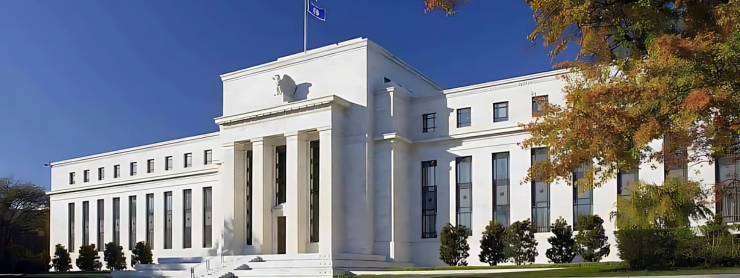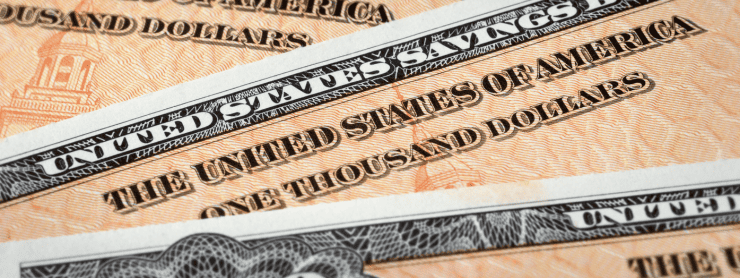There’s a Counterpunch article doing the rounds on social media claiming the Federal Reserve (the Fed) is a private bank or corporation. To support this claim, the author points to private banks holding stock in the Federal Reserve. While true, the author assumes that like other corporations, (the Fed) is guided by and committed to the interests of its shareholders. He bases the entirety of his argument about the Fed being private on this assumption. Fortunately, his assumption isn’t true and cannot possibly be. Private banks that take part in the Federal Reserve System have to, by law, invest in the system by purchasing a certain amount of stock. This isn’t any ordinary stock. It cannot be freely traded. It cannot be sold. What the banks get for buying into the system and agreeing to cooperate with it is a 6% dividend on their investment. No more, no less. They can’t bribe the Fed for more, and the Fed has no capability of getting them more. The terms of the deal were written into the Federal Reserve Act of 1913 by Congress and can only be amended by Congress (which tells you exactly who controls the Fed). In other words, the Fed has no commitment to the interests of its shareholders because the shareholders have no way to sell their stock, and their small return from holding that stock never changes regardless of what the Fed does. This is nothing like the relationship between a private bank and its shareholders.
At this point you should be asking why the author omitted these facts. But hold on, because it gets worse. Satisfied that he’s supported his central claim, the author no longer sees the need for evidence, so he resorts to testimony. Apparently struggling to find any, he quotes 1930s Congressman, Louis McFadden, who decrees that Fed banks are private monopolies preying on people. Who can argue with that, right? The Congressman hath spoken! Unfortunately, and I hope you’re beginning to see a pattern here, the author has omitted something crucial. Congressman McFadden was a vehement anti-Semite and Nazi sympathizer who was praised by the Nazis for pushing the same anti-Semitic conspiracy theories publicized by Goebbels (e.g., Protocols of the Elders of Zion). His party ostracized him, announcing he was crazy and saying We intend to act to all practical purposes as though McFadden had died. McFadden’s platform was to keep Jews out of the Republican Party, and he even claimed FDR was controlled by Jews. Frankly, I’m surprised the author managed to find a quote without the word “Jew” in it, because McFadden’s remarks were clearly founded in anti-Semitism. But then, that’s another pesky fact the author wants to hide.
Later in the article, the author claims the Fed earns interest from bonds it purchases from the government. Again, this is true and, without further information, you might think it scandalous. But, hold your horses for the worst omission of all. Where is the fact that those interest payments are deposited back into the US Treasury at the end of each year to the tune of almost 100 billion dollars? It’s not there. Ask why.
By now, the author describes it as fact that the Fed is committed, first and foremost, to the interests of its shareholders. What hero of Louis McFadden was it who said if you repeat a lie often enough? Anyway, this supposed fact is now used to explain other facts that are equally wrong. For example, it supposedly explains why (the Fed’s) monetary policies are increasingly catered to the benefits of the banking industry. The author cites what he considers evidence, claiming the Fed was behind deregulations prior to the 2008 financial crisis, as well as bank bailouts that followed. But, as anyone without an agenda knows, those were chiefly acts of Congress, from the Clinton (Glass-Steagal repeal), Bush, and Obama (bank bailout) administrations. He goes on to blame cuts in social programs on the Fed too. But, what does the Fed have to do with that? Very little, if anything. The author blames the Fed for the crimes of Congress and claims those crimes, that benefited wealthy bankers, are why the Fed is private.
To achieve further irrelevance, the author takes us further back in time, to the 18th century, where Thomas Jefferson rightfully decries any central bank having control over the money supply. The author is subtly implying that the Fed issues our currency. It doesn’t. Congress, through spending bills, authorizes the Treasury to instruct the Fed to make payments to whomever the government is buying from. Only Congress has the authority to issue the currency. The author actually does us the credit of citing the Constitution in the next paragraph, confirming Congress has this power. The Fed, then, is simply the government’s bank, ensuring those dollars reach their intended destination, right? Not according to the author, who claims the 1913 creation of the Fed gave it powers over interest rate, money supply, credit creation, inflation, and employment. Again, it’s mostly true, but with the curious addition of money supply, which, given the earlier Jefferson quote is meant to imply the Fed creates the currency. It doesn’t, and the article doesn’t link to any resources to support this statement.
The author, who seems to think testimony is better than facts, quotes President Woodrow Wilson next. Wilson is framed as being regretful that he created the Federal Reserve. Unfortunately, the quote is partially fabricated and doesn’t mention the Fed once. In proper context, Wilson appears to be talking about monopolies instead. Surprisingly, the author admits the quote is questionable (in the references section of his article that almost no-one will read), but it doesn’t bother him. He says regardless of the exact words used, he had serious reservations about the formation of the Federal Reserve Bank. In other words, who cares, right? You came here to have your opinions reinforced, and that’s what I’ve just done for you.
This lack of academic rigor is apparent if we return to the opening paragraph for a moment. The article begins with its conclusions in the first few paragraphs, heavy with words like “shrouded,” “presumed,” and “purported” to induce feelings of outrage about having being deceived. It uses the popular, almost meme-like criticism that “the word federal is the only thing federal about it.” It sounds intelligent, right? It assumes you know everything about the Federal Reserve and why it supposedly isn’t federal. Just be sure to smoke a pipe, grow a long authoritative beard, and stare thoughtfully at a bookcase while making the declaration. You’ll be king of the pseudo-intellectual dilettantes in no time.
Rarely does the article get into the nuts of bolts of how things actually work, but it does have time to conflate independence with being private. It’s true that the Fed is given (by Congress!) a limited degree of independence over monetary policy (but not fiscal policy). Politicians do not usually have degrees in macroeconomics, so this seems like a reasonable delegation of powers. Congress can, at any time, remove that independence and run monetary policy from the Treasury instead. Unfortunately, the author pretends this makes the Fed in some way private. It doesn’t. Many government agencies are given various levels of independence that can be rescinded at any time.
Before he splutters to a halt, the author reiterates that the Fed is why the banking sector is an unregulated casino, claiming this is backed by undeniable facts and figures. The figures he cites are rising income and wealth inequality statistics. But, one might ask, how do these statistics implicate the Fed? Congress overturned Glass-Steagall, turning the banking sector into a casino and contributing to rising inequality. The author is, once again, manipulating his readers with partial truths. The shameful piece ends with a pitiful collection of five references. The first is the Federal Reserve itself, which contradicts his claims. The second is his admission that the Wilson quote is shaky. The final three are not used to support his claim about the Fed being private. In other words, he has no references.
The target article omits numerous facts that don’t support its narrative. The biggest omissions are that the Fed operates as a non-profit, handing all its profits over to the US Treasury at the end of each year, and that member banks of the Federal Reserve System have to hold a certain amount of stock, by law, which they cannot trade, sell, or increase their profits from by manipulating officials. These are things that no private corporation would do (or perhaps Archduke Rothschild is furious his minions are giving his money away). The author also omits several facts about Congress – how it wrote and regularly amends the Federal Reserve Act, how it appoints the Fed’s leadership, and how it’s chiefly responsible for the causes and consequences of the financial crisis. The author omits all of this and uses only facts that could support his argument. On top of that, he uses testimony from anti-Semitic Nazi sympathizers, fake quotes, and has no references to back up his claims. So get ready for my concise, but no less valid, opinion: his article is bogus.
One must ask why the author left all that out. I can envisage two possible reasons: either an emotional attachment to a conspiracy theory that appeals to anti-capitalists and anti-Semites (of course you don’t have to be both, I’m quite anti-capitalist myself), or a philosophical desire to “End the Fed” allowing for a complete private takeover of the banking sector. Given the author’s political leanings, I’m going to say the former. However, after reading the latter, you might understand why libertarians are so fond of the idea. Despite what you may think, dog-eat-dog libertarians don’t suddenly grow a conscience when it comes to banking. Their agenda is the same agenda libertarians always have: to privatize. If the Fed disappears, who do you think will take over its responsibilities? Goldman Sachs or Wells Fargo? And if that happens, our nation really will be over a barrel.





